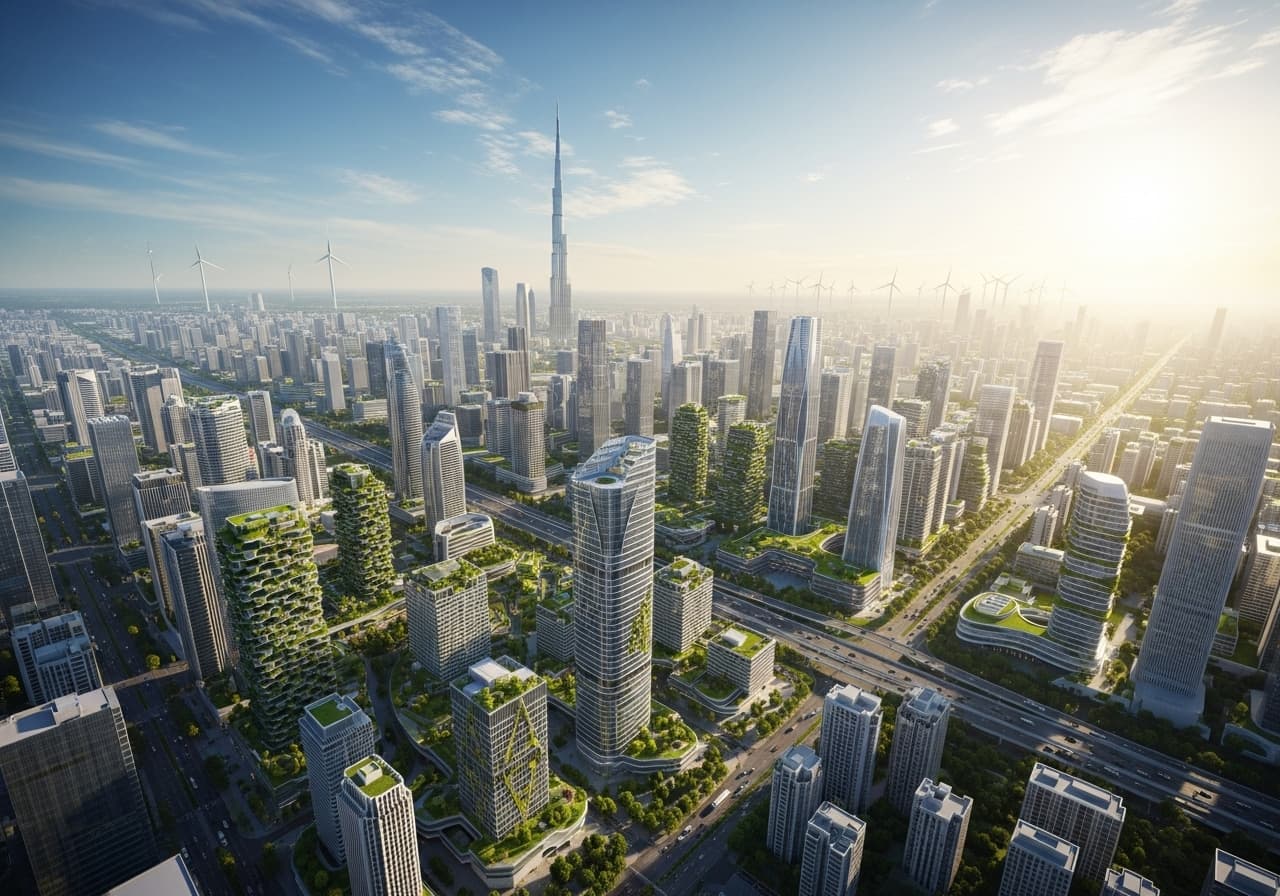Dubai's real estate scene is getting a major shake-up, and it's coming from an unexpected place: the world of finance. Binghatti Holding, a name many in the emirate will recognize, just launched its first-ever green sukuk, a $500 million instrument that does more than just raise money. It sets a new course for how Dubai builds its future.
This isn't just a corporate move; it's a direct line to the UAE's Net Zero 2050 Strategic Initiative. To hit that ambitious climate target, the country needs a huge influx of green investment. Binghatti's sukuk is a clear statement that in Dubai's high-end property market, luxury and sustainability are now two sides of the same coin.
Investor Demand Shows a Clear Trend
The offering, which is listed on Nasdaq Dubai and matures in 2029, was Binghatti's first test of ESG-linked finance. The response was immediate and overwhelming.
- Massive Oversubscription: The deal was oversubscribed 4.3 times, drawing over $2.1 billion in orders from investors across the globe.
- Competitive Rates: This flood of interest allowed the company to lock in a profit rate of 7.75 percent. That's a strong signal of confidence not just in Binghatti, but in Dubai's entire green strategy.
As one Senior Real Estate Analyst at UAE Property Watch noted, this level of interest is a game-changer. It shows a powerful appetite from international investors for Dubai projects that are serious about environmental standards. This will likely push other developers in the emirate to follow suit.
With this listing, Binghatti's total sukuk value on Nasdaq Dubai now hits $1.5 billion, boosting the exchange’s total debt listings to more than $141 billion and cementing its role in sustainable finance.
The Purpose Behind Green Financing
A green sukuk operates differently from a standard bond. It's purpose-driven capital. The issuer is contractually bound to use every dollar for projects with specific, measurable environmental upsides. Investors are not just chasing a financial return; they're backing tangible outcomes like lower carbon footprints, better energy efficiency, and smarter water use.
This creates a new level of accountability, directly linking a project's financial success to its environmental performance. For property owners, the benefits are concrete:
- Lower Operating Costs: Buildings constructed with these funds often have better insulation, solar panels, and water recycling, leading to smaller utility bills.
- Higher Property Value: As more buyers and renters prioritize sustainability, these green-certified properties tend to fetch higher prices and rental income.
Building a Greener Dubai Skyline
The big question for 2025 and beyond is what exactly this $500 million will build. While the blueprints are not yet public, the funds are earmarked for 'qualified green projects' that meet the UAE’s strict sustainability codes.
We can expect this money to finance a new generation of architecture in Dubai: buildings that are just as eco-conscious as they are visually striking. This could mean residential towers designed for peak energy efficiency, commercial buildings using recycled materials, or entire communities built around green spaces and low-impact infrastructure.
Binghatti’s move is not a one-off event. It is the start of a market-wide shift. As Dubai works towards its 2050 net-zero goal, this green sukuk is the blueprint. It proves that building sustainably is not just a moral choice; it is also extremely profitable.


